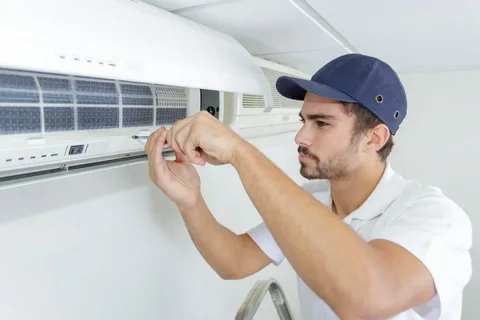Choosing a new heating system for your business is a major investment. Get it right, and you ensure a comfortable, productive, and cost-effective environment. Get it wrong, and you could be wasting money every single day. The key to success lies in a simple but crucial measurement: the BTU.
BTU stands for British Thermal Unit. Think of it as the “horsepower” for a heater—it’s a standard unit of measurement that tells us exactly how much heat energy a system can produce. A correct BTU calculation is the foundation of an efficient and effective heating solution, ensuring the system you choose is perfectly matched to the unique demands of your space.
The Goldilocks Problem: What Happens When BTUs Are Wrong?
An inaccurate BTU calculation leads to one of two costly problems:
- Too Few BTUs (Under-heating): A system that is too small for the space will run constantly trying to reach the target temperature. This leads to excessive wear and tear on components, sky-high energy bills, and an environment that’s never truly comfortable for staff or customers.
- Too Many BTUs (Over-heating): A system that is too powerful will heat the space too quickly and then shut off. This constant on-off cycle, known as short-cycling, causes unnecessary stress on the heater and wastes a tremendous amount of fuel. You’re paying for power you simply don’t need.
It’s More Than Just Size: Factors in a Professional Calculation
Calculating the precise BTU requirement for a commercial space is a complex task. It goes far beyond simple floor measurements. A professional assessment considers many critical factors, including:
- Total Volume: Not just the length and width, but the ceiling height is crucial.
- Building Insulation: The quality of insulation in the roof, walls, windows, and doors dramatically impacts heat loss.
- Building Use: A busy workshop with frequently opening roller doors has vastly different needs than an enclosed retail showroom.
- Heat Sources: On-site machinery, lighting, and even the number of people in the space all generate their own heat.
- Climate & Location: The average outside temperature in your region determines how hard the system needs to work.
The Right Heater for the Right Job
Once the precise BTU requirement is known, you can select the right type of appliance. For a large, open-plan building, a powerful and efficient warm air heater might be the perfect solution to distribute heat evenly. The unique demands of a high-ceilinged building require an efficient warehouse heating system that is specifically designed to handle that kind of volume without wasting energy.
Ultimately, the goal is to create a tailored solution where the heater’s power and efficiency rating work in perfect harmony, delivering the performance you need at the lowest possible operational cost.
Take the Guesswork Out of Your Heating
While online calculators can provide a rough estimate, the only way to ensure complete accuracy is by calculating BTU requirements through a professional site survey. An expert assessment will save you time and money, guaranteeing your investment in a new heating system is a smart one for years to come.


